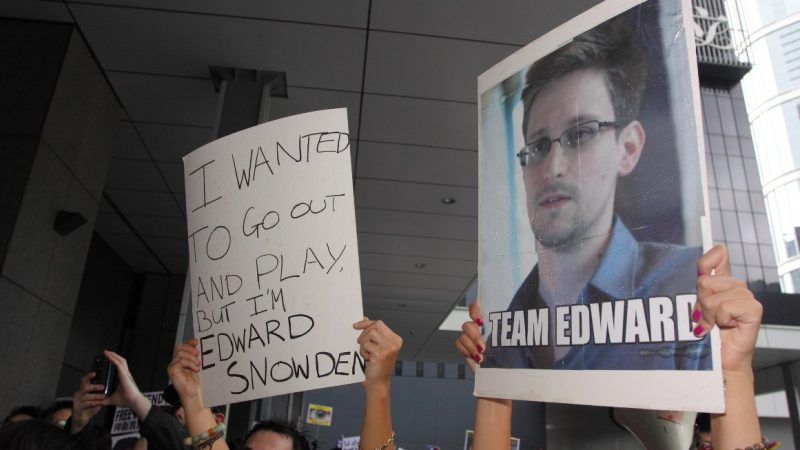Our Post-9/11 Response Deprived Us of Liberty and Didn't Stop Terrorism. Let's Not Venerate or Expand It.
We don’t need new tools or agencies to track alleged domestic terrorists.

Writing at The Daily Beast, Jeff Stein asks whether America needs a new federal spy agency focused on domestic threats in the wake of the attack on the U.S. Capitol by Americans who refuse to accept that outgoing President Donald Trump lost the 2020 election.
But we already have such an organization. It's called the FBI. Stein argues that the FBI is so focused on solving and clearing crimes that it's not able to effectively engage in domestic intelligence gathering. He asks whether a new federal agency should be created for that purpose.
In reality, the FBI is set up just fine for intelligence gathering. In fact, under Trump, the FBI's authority to secretly snoop on American citizens was actually expanded. The intelligence failures that preceded the attack on the Capitol involved a lack of communication between law enforcement agencies about the intelligence that had been gathered. It's not entirely clear how yet another federal surveillance agency would fix that problem.
Stein does quote a number of experts who throw cold water on the idea of creating a new domestic surveillance agency, including former Director of National Intelligence James Clapper, who says, "Whenever something goes wrong, the knee-jerk Beltway reaction is, 'Let's reorganize,' when more often than not, that's not the problem."
Clapper himself became a symbol of the capacity of the federal government to snoop on American citizens when he flat-out lied to a Senate Intelligence Committee in 2013 about whether the National Security Agency (NSA) was collecting Americans' data records. "Not wittingly," Clapper said.
But the NSA was collecting such information. In fact, it collected millions of metadata records documenting Americans' cellphone and internet activities. Edward Snowden even pointed to Clapper's lie as one of the reasons why he decided to blow the whistle on America's post-9/11 domestic surveillance regime.
Our understanding of that domestic spying regime did not start with Snowden. Thanks to an Associated Press investigation we learned in 2011 that the New York City Police Department had engaged in the mass surveillance of Muslim citizens. That police snooping uncovered zero terror plots.
The rise of the Department of Homeland Security led to the creation of a national network of "fusion centers," state-level centralized information hubs that were presented as a way of collating data about potential terrorism threats within the U.S. These centers have, in fact, become domestic surveillance tools keeping track of everything from the Occupy movement to protesters bearing "Don't Tread on Me" flags. The fusion centers have been justly criticized for being useless, expensive, and bad for civil liberties.
More recently, the Department of Homeland Security deployed drones and recorded hundreds of hours of Black Lives Matter protests in the wake of George Floyd's death.
We are absolutely awash in federal domestic surveillance.
Furthermore, these expanded federal surveillance powers have failed to prevent multiple terrorist attacks on U.S. soil in the past two decades. There was the Boston Marathon bombing, the San Bernardino shootings, and the Orlando Pulse nightclub shooting. It's hard to believe that yet another agency will be any different.
As a response to the 9/11 attacks, the U.S. embraced a host of invasive policies that didn't work, didn't make us safer, and didn't respect our civil liberties. We should not make the same mistakes in our response to the attack on the Capitol.


Show Comments (121)